
Entertainment
-
 DiscoverEU marks 40 years of Schengen with 40,000 free travel passes for young Europeans
The European Commission is celebrating the 40th anniversary of the Schengen Area by offering 40,000 young Europeans the chance to explore the continent through DiscoverEU, part of the31 October 2025Read More...
DiscoverEU marks 40 years of Schengen with 40,000 free travel passes for young Europeans
The European Commission is celebrating the 40th anniversary of the Schengen Area by offering 40,000 young Europeans the chance to explore the continent through DiscoverEU, part of the31 October 2025Read More... -
 Brussels universities to award honorary doctorates to Stromae, Lize Spit, and Amélie Nothomb
The Vrije Universiteit Brussel (VUB) announced on Monday that Stromae, Lize Spit, Amélie Nothomb, François Schuiten, and Ever Meulen will receive joint honorary doctorates from VUB and27 October 2025Read More...
Brussels universities to award honorary doctorates to Stromae, Lize Spit, and Amélie Nothomb
The Vrije Universiteit Brussel (VUB) announced on Monday that Stromae, Lize Spit, Amélie Nothomb, François Schuiten, and Ever Meulen will receive joint honorary doctorates from VUB and27 October 2025Read More... -
 Stolen Renaissance masterpiece returns to Italy after 52 years
After more than half a century, a stolen Renaissance painting has finally returned home to Italy. *Madonna with Child*, a tempera-on-wood masterpiece by Venetian painter Antonio Solario,31 July 2025Read More...
Stolen Renaissance masterpiece returns to Italy after 52 years
After more than half a century, a stolen Renaissance painting has finally returned home to Italy. *Madonna with Child*, a tempera-on-wood masterpiece by Venetian painter Antonio Solario,31 July 2025Read More... -
 Belgian seaside resorts: highlights of royal De Panne
While Ostend is often dubbed the queen of Belgium’s seaside resorts, the country’s coastline offers many other gems worth discovering. In this series, Belga English explores four distinctive20 July 2025Read More...
Belgian seaside resorts: highlights of royal De Panne
While Ostend is often dubbed the queen of Belgium’s seaside resorts, the country’s coastline offers many other gems worth discovering. In this series, Belga English explores four distinctive20 July 2025Read More... -
 Louis Vuitton named suspect in Dutch money laundering probe
Luxury fashion house Louis Vuitton has been named a suspect in a Dutch money laundering investigation, according to the Dutch Public Prosecution Service (OM). The OM alleges that18 July 2025Read More...
Louis Vuitton named suspect in Dutch money laundering probe
Luxury fashion house Louis Vuitton has been named a suspect in a Dutch money laundering investigation, according to the Dutch Public Prosecution Service (OM). The OM alleges that18 July 2025Read More... -
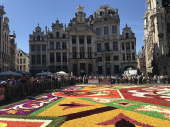 Brussels tops global rankings for international meetings as tourism soars to new heights
Brussels has once again secured its position as the world’s top city for international meetings, according to the latest annual report from the Union of International Associations (UIA).26 June 2025Read More...
Brussels tops global rankings for international meetings as tourism soars to new heights
Brussels has once again secured its position as the world’s top city for international meetings, according to the latest annual report from the Union of International Associations (UIA).26 June 2025Read More... -
 Coffee prices keep climbing in Czech establishments
The cost of a cup of coffee in Czech restaurants and cafés has increased by 4% over the past year, now averaging CZK 57.80, according to data from the Dotykačka point-of-sale system.15 June 2025Read More...
Coffee prices keep climbing in Czech establishments
The cost of a cup of coffee in Czech restaurants and cafés has increased by 4% over the past year, now averaging CZK 57.80, according to data from the Dotykačka point-of-sale system.15 June 2025Read More...
Politics
-
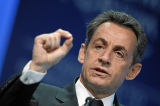 France’s former President Sarkozy to begin appeal trial over Libyan Funding allegations
Former French President Nicolas Sarkozy is set to appear in a Paris court on March 16 for the start of his appeal trial over allegations of illegal campaignRead More...
France’s former President Sarkozy to begin appeal trial over Libyan Funding allegations
Former French President Nicolas Sarkozy is set to appear in a Paris court on March 16 for the start of his appeal trial over allegations of illegal campaignRead More... -
 French parliament poised to halt Macron’s pension reform amid budget Turmoil
French lawmakers are expected to vote Wednesday to suspend President Emmanuel Macron’s controversial pension reform, as the government battles to push next year’s budget through aRead More...
French parliament poised to halt Macron’s pension reform amid budget Turmoil
French lawmakers are expected to vote Wednesday to suspend President Emmanuel Macron’s controversial pension reform, as the government battles to push next year’s budget through aRead More... -
 Ex-minister Ziobro rejects corruption allegations, labels case political
Former Polish justice minister Zbigniew Ziobro vowed on Saturday to pursue “legal and political” action after parliament voted to lift his immunity, clearing the way for prosecutors to bringRead More...
Ex-minister Ziobro rejects corruption allegations, labels case political
Former Polish justice minister Zbigniew Ziobro vowed on Saturday to pursue “legal and political” action after parliament voted to lift his immunity, clearing the way for prosecutors to bringRead More... -
 Pro-Russian hackers briefly disrupt Belgian Telecom websites in DDoS attack
A wave of DDoS attacks briefly disrupted the websites of Belgian telecom operators Proximus and Scarlet on Wednesday morning, with the pro-Russian hacker group NoName057 claimingRead More...
Pro-Russian hackers briefly disrupt Belgian Telecom websites in DDoS attack
A wave of DDoS attacks briefly disrupted the websites of Belgian telecom operators Proximus and Scarlet on Wednesday morning, with the pro-Russian hacker group NoName057 claimingRead More... -
 French Parliament weighs wealth tax as budget gap looms
France’s government on Friday defended its proposed alternative to a sweeping tax on the ultra-rich, as lawmakers clashed over how to tap the country’s highest fortunes to help close aRead More...
French Parliament weighs wealth tax as budget gap looms
France’s government on Friday defended its proposed alternative to a sweeping tax on the ultra-rich, as lawmakers clashed over how to tap the country’s highest fortunes to help close aRead More...
News
-
 Swiss army has “gone back to sleep,” says departing chief
Switzerland briefly awakened to the urgency of national defence following Russia’s 2022 invasion of Ukraine — but has since drifted back into complacency, outgoingRead More...
Swiss army has “gone back to sleep,” says departing chief
Switzerland briefly awakened to the urgency of national defence following Russia’s 2022 invasion of Ukraine — but has since drifted back into complacency, outgoingRead More... -
 Poland and Germany to seal new defence pact in 2026, leaders announce
Polish Prime Minister Donald Tusk and German Chancellor Friedrich Merz said on Monday that their governments plan to sign a new bilateral defence agreement nextRead More...
Poland and Germany to seal new defence pact in 2026, leaders announce
Polish Prime Minister Donald Tusk and German Chancellor Friedrich Merz said on Monday that their governments plan to sign a new bilateral defence agreement nextRead More... -
 Monegasque Language Committee resumes its work
Following the publication of Sovereign Ordinance No. 11,219 on 7 May 2025, which appointed the members of the Monegasque Language Committee, the group has officially reconvened atRead More...
Monegasque Language Committee resumes its work
Following the publication of Sovereign Ordinance No. 11,219 on 7 May 2025, which appointed the members of the Monegasque Language Committee, the group has officially reconvened atRead More... -
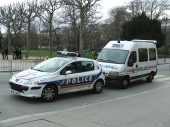 France arrests four, including two Russian nationals, on espionage suspicions
French authorities have arrested four people — including two Russian nationals — as part of an investigation into suspected espionage conducted on behalf of a foreign state, the ParisRead More...
France arrests four, including two Russian nationals, on espionage suspicions
French authorities have arrested four people — including two Russian nationals — as part of an investigation into suspected espionage conducted on behalf of a foreign state, the ParisRead More... -
 German home prices expected to climb over 3% annually, pressuring affordability for new buyers
German residential property prices are poised to grow by more than 3% a year in the coming years, according to a Reuters poll of property analysts, raising fresh concerns about housingRead More...
German home prices expected to climb over 3% annually, pressuring affordability for new buyers
German residential property prices are poised to grow by more than 3% a year in the coming years, according to a Reuters poll of property analysts, raising fresh concerns about housingRead More... -
 UN convention to review environmental complaint over France’s 2030 Winter Olympics
A United Nations environmental body has agreed to examine a complaint accusing France of violating international transparency and public-participation rules during preparations for the 2030Read More...
UN convention to review environmental complaint over France’s 2030 Winter Olympics
A United Nations environmental body has agreed to examine a complaint accusing France of violating international transparency and public-participation rules during preparations for the 2030Read More... -
 Louvre closes major gallery over structural concerns amid ongoing security scrutiny
The Louvre Museum in Paris has closed one of its key galleries after engineers identified structural weaknesses in parts of the historic building, adding fresh unease to an institution alreadyRead More...
Louvre closes major gallery over structural concerns amid ongoing security scrutiny
The Louvre Museum in Paris has closed one of its key galleries after engineers identified structural weaknesses in parts of the historic building, adding fresh unease to an institution alreadyRead More... -
 EU reaches provisional €192.8 billion budget deal for 2026, boosting research, security and competitiveness
EU lawmakers struck a provisional agreement early Saturday on the bloc’s 2026 budget, securing hundreds of millions in additional funding for research,Read More...
EU reaches provisional €192.8 billion budget deal for 2026, boosting research, security and competitiveness
EU lawmakers struck a provisional agreement early Saturday on the bloc’s 2026 budget, securing hundreds of millions in additional funding for research,Read More... -
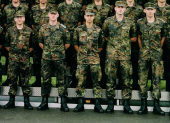 Germany to invest €26.5 billion in soldier equipment and armoured vehicles
Germany is set to channel €26.5 billion into modernising troop gear and expanding its fleet of wheeled armoured vehicles over the next decade, according to a finance ministry document seenRead More...
Germany to invest €26.5 billion in soldier equipment and armoured vehicles
Germany is set to channel €26.5 billion into modernising troop gear and expanding its fleet of wheeled armoured vehicles over the next decade, according to a finance ministry document seenRead More...

Most Read
- Teen held after US woman killed in London stabbings
- Football: Farhad Moshiri adamant Everton deal above board
- Greece hails new post-bailout chapter but concerns remain
- The Kokorev case caused wide discussion in Brussels
- EU accession talks stir debate in Moldova: insights from Gagauzia's leader, Yevgenia Gutsul
Economics
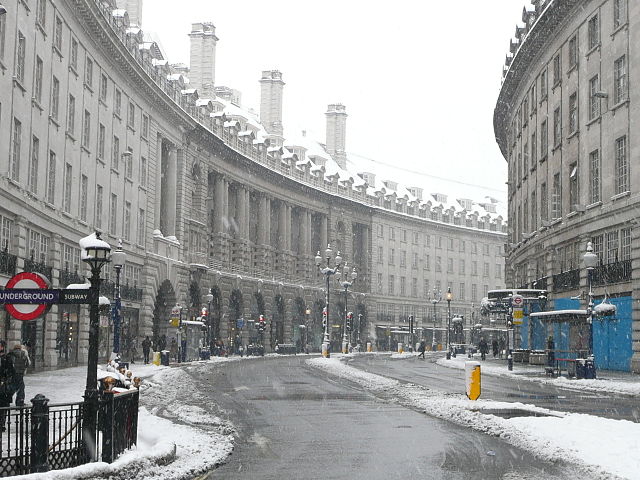
Heavy snowfall and deadly blizzards lashed Europe Thursday, forcing airports to cancel or delay flights around the continent, as a deep freeze gripped countries from the far north to
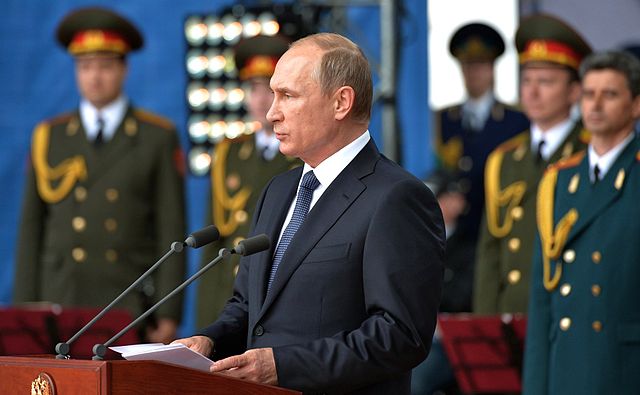
President Vladimir Putin on Thursday launched what appeared to be the start of a new arms race with Washington, as he boasted of a new generation of "invincible" Russian weapons
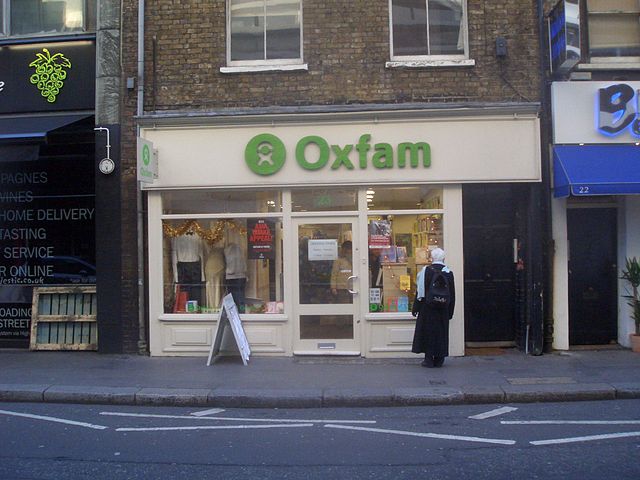
Oxfam revealed Tuesday it was investigating 26 new cases of sexual misconduct since the crisis erupted over its handling of a 2011 prostitution scandal in Haiti, which the British charity

New Dutch Foreign Minister Halbe Zijlstra resigned Tuesday, after admitting he had lied about his presence at a meeting with Russian President Vladimir Putin.
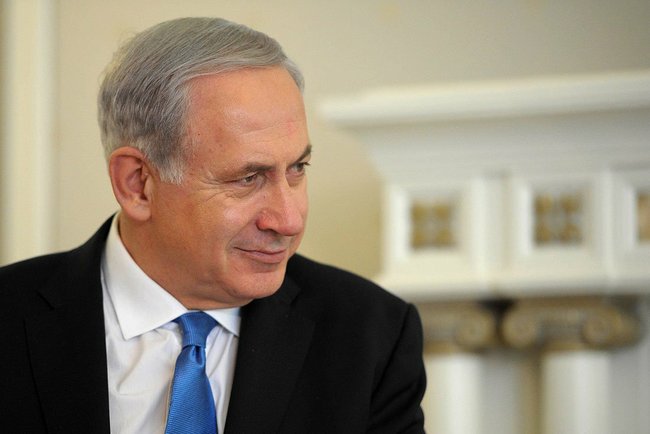
Israel struck what it said were Iranian targets inside Syria on Saturday in "large-scale" raids after an Israeli warplane crashed under fire from Syrian air defences in a severe increase in tensions, the military said.
The confrontation was the most serious between arch foes Israel and Iran since the civil war in Syria began in 2011.
Israel's raids came after it intercepted what it said was an Iranian drone entering its airspace from Syria, which it labelled an "attack".
It was the first time Israel has publicly acknowledged attacking what it identified as Iranian targets in Syria since the conflict started.
Iran denounced Israeli "lies" and said Syria had the right to self-defence in response to Israeli strikes.
Separately, Iran issued a joint statement with the Syrian regime's other main allies -- Russia and Lebanese militant group Hezbollah -- denying the allegations regarding the drone.
Russia's foreign ministry called for "restraint" from all parties, adding it was "unacceptable to create threats to the lives and security of Russian soldiers" in Syria.
Israeli military spokesman Jonathan Conricus warned that Syria and Iran were "playing with fire", but stressed his country was not seeking an escalation.
"This is the most blatant and severe Iranian violation of Israeli sovereignty in the last years," Conricus told journalists.
Israel said its reprisals after the exchange were "large-scale" raids that attacked Syrian air defence systems and Iranian targets.
"Twelve targets, including three aerial defence batteries and four Iranian targets that are part of Iran's military establishment in Syria were attacked," a military statement said.
Israel has repeatedly warned in recent weeks against the presence of Iranian forces in neighbouring Syria.
- 'Massive' fire -
The two Israeli crew of the crashed F16 were alive, although one was severely wounded, the military said.
Israel's military said the confrontation began with the drone entering its airspace before being intercepted by a combat helicopter.
Conricus said it was intercepted well inside Israel over the city of Beit Shean, near the border with Jordan.
He did not say whether the drone was armed or for reconnaissance, but alleged it "was on a military mission sent by Iranian military forces" from an "Iranian base" in the Palmyra area.
Eight Israeli aircraft then "targeted the Iranian control systems in Syria that sent the UAV" and confirmed hits, Conricus said.
He said the aircraft met "massive Syrian anti-air fire", and the F16 later crashed in northern Israel's Jezreel valley.
Conricus said the jet probably crashed as a result of the anti-aircraft fire, without saying definitively.
According to the military, the pilots ejected, landed in Israel and were taken to hospital.
Syria said its air defences repelled two Israeli raids on its military bases in the centre of the country, hitting more than one warplane during the first.
- 'Nobody tries us' -
The Syrian Observatory for Human Rights, a Britain-based monitor of the seven-year civil war, said the earlier Israeli raids had targeted several military bases in the east of the central province of Homs.
It said the bases are used by both Iranian and Russian military personnel deployed in support of the regime.
Syrian state media said the later raids targeted military positions in the south.
Iranian foreign ministry spokesman Bahram Ghasemi said that "to cover their crimes in the region, Israeli officials are resorting to lies against other countries".
He said "Iran does not have a military presence in Syria, and has only sent military advisers at the request of the Syrian government".
Iran, Russia and Hezbollah -- the Syrian regime's main allies -- issued a statement calling Israel's drone allegations "lies".
It said Israel's strikes had targeted drones used against "terrorist organisations", mainly the Islamic State group.
The statement vowed a "relentless response" to "all further aggression".
Israeli Prime Minister Benjamin Netanyahu met officials including Defence Minister Avigdor Lieberman and military Chief of Staff Gadi Eisenkot later Saturday.
He has held a series of talks in recent months with Russian President Vladimir Putin on Iran's influence in Syria and Lebanon.
Netanyahu has been seeking to persuade Russia to limit Iran's presence near Israel and to stop it from entrenching itself militarily in Syria.
In Moscow last month, Netanyahu reiterated concerns over what he called attempts by Iran to establish a military presence in Syria and produce weapons against Israel there.
"We won't accept either of those, and will act according to our needs," he said.
Israel remains technically at war with Syria and occupies a swathe of the strategic Golan Heights that it seized in the Six-Day War of 1967 and later annexed in a move never recognised by the international community.
On Tuesday, Netanyahu took members of his security cabinet for a tour of the Israeli-occupied side, where they were briefed by the military.
Israel has sought to avoid direct involvement in the Syrian war, but acknowledges carrying out dozens of air strikes there to stop what it calls advanced arms deliveries to Hezbollah.
Analysts said they did not expect a further escalation for now, but suggested the heavy anti-aircraft fire showed Syria was more emboldened to stop Israel's strikes.
Ofer Zalzberg of the International Crisis Group said Russia should mediate since "it is the only stakeholder which has strong relations with all sides today".
But he said "this incident signals a new phase in a way of the war in Syria". afp

Global stock markets greeted 2018 in mixed fashion Tuesday, with euro and pound strength depressing Europe while Wall Street and Asia gained ground.
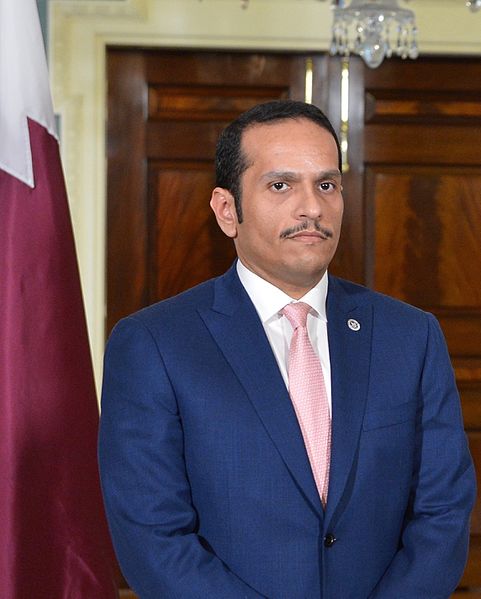
Regional powerhouse Saudi Arabia snubbed its former ally Qatar at the annual summit Tuesday of Gulf monarchies as King Salman stayed away despite the presence of the Qatari emir.

Nine women disfigured by acid became defiant models Saturday at the first haute couture fashion show for the survivors of the growing scourge of acid attacks in India.
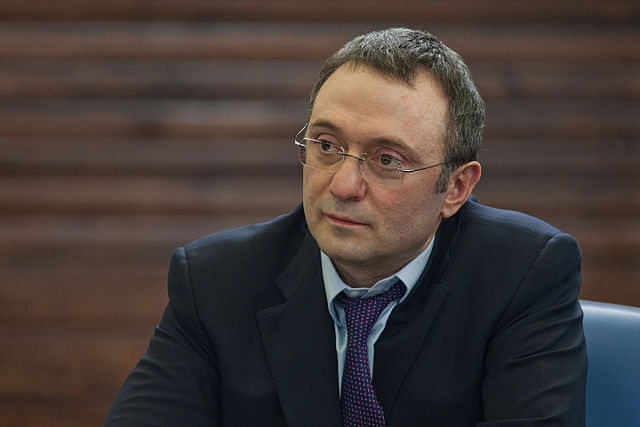
Moscow on Wednesday protested at the arrest of billionaire senator Suleyman Kerimov in France, where he faced a second day of questioning over alleged tax evasion involving the
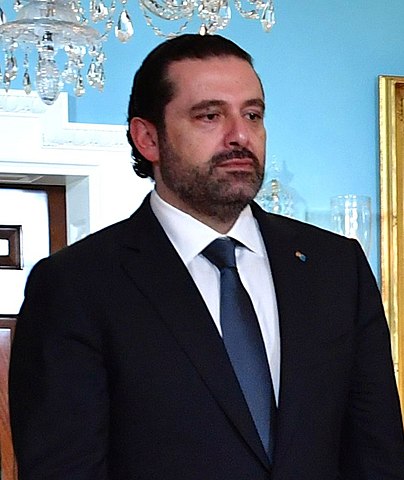
Lebanon's Prime Minister Saad Hariri said Wednesday he was suspending his surprise resignation, pending talks, providing a potential way out of a political crisis that has rocked the

















